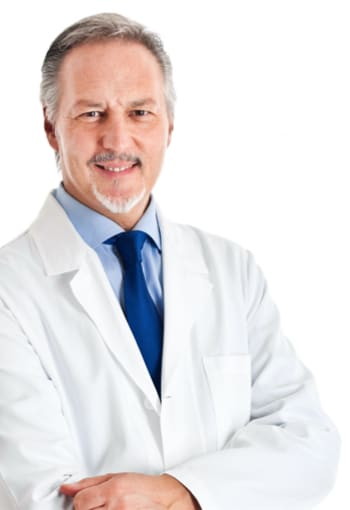OMS are the Experts in Face, Mouth and Jaw Surgery
Oral and maxillofacial surgeons (OMS) are the only dental specialists recognized by the American Dental Association surgically trained in a hospital-based residency program for a minimum of four years. OMS residents train alongside medical residents in internal medicine, general surgery and anesthesiology, otolaryngology (ear, nose and throat), plastic surgery, emergency medicine and other medical specialty areas. This training focuses almost exclusively on the bone, skin, and muscle of the face, mouth, and jaws, in addition to the administration of anesthesia. Oral and maxillofacial surgeons have knowledge and expertise that uniquely qualifies them to diagnose and treat a number of functional and esthetic conditions in this anatomical area. Many OMS are board-certified, seek further degrees, or complete fellowships for a subspecialty.
OMSs have extensive education and experience with:
Tooth Extractions
While impacted wisdom teeth are commonly extracted, it also may be necessary to remove teeth that are crowded, diseased beyond restoration or supernumerary (extra teeth). OMSs are the obvious choice for patients in need of surgical tooth extractions, whether simple or complicated by impaction.
Dental Implants
As pioneers of the dental implant procedure, oral and maxillofacial surgeons are leaders in the innovative techniques that deliver a natural-looking solution for missing or damaged teeth. Their extensive surgical training allows OMSs to successfully place dental implants in most patients, even if they have been deemed as higher risk.
Anesthesia
Oral and maxillofacial surgeons are trained in all aspects of anesthesia administration. During the four to six years of training in a hospital-based surgical residency program, OMS residents evaluate patients for anesthesia, deliver the anesthetic and monitor post-anesthetic patients during the medical anesthesiology service.
Oral, Head and Neck Pathology
Oral and maxillofacial surgeons are the experts for diagnosing and surgically treating pathology, both benign and malignant (cancerous), of the head, neck and mouth.
Corrective Jaw Surgery
Problems chewing, swallowing or speaking could be evidence of differences in skeletal growth between the upper and lower jaws. Corrective jaw – or orthognathic – surgery can correct a range of major and minor dental and skeletal irregularities, realigning teeth and improving basic functions such as chewing and breathing.
Orthodontic or Preprosthetic Surgery
A patient may be referred to an OMS for a surgical procedure before orthodontics or being fitted for prosthetics (dentures). In these cases, the OMS prepares the mouth for what comes next. In the case of orthodontic surgery, that may mean the removal of over-retained baby teeth or the exposure of unerupted teeth. Before fitting for prosthetics, an OMS might remove excess bone and gum tissue or smooth and recontour the bone ridge dentures rest on.
Facial Injury / Trauma Surgery
Oral and maxillofacial surgeons are experts in treating and repairing facial trauma, including fractures involving the teeth and jaws, fractures of other facial bones and soft tissue injuries to the face and mouth. Their knowledge regarding proper jaw position and bite (dental occlusion) is critical when repairing complex facial fractures. In fact, the American College of Surgeons states that a multi-disciplinary approach – in which the surgical team is composed of specialists in oral and maxillofacial surgery, otorhinolaryngology, plastic surgery and ophthalmology – is beneficial for the treatment of complex craniofacial injuries.
TMJ and Facial Pain
When symptoms of TMJ trouble appear, consult an oral and maxillofacial surgeon. A specialist in the areas of the mouth, teeth and jaws, your OMS has the expertise to correctly diagnose the problem.
Obstructive Sleep Apnea
Depending on whether the obstructive sleep apnea (OSA) is mild, moderate or severe, OMSs have extensive training to select the treatment that is most appropriate.
Facial Cosmetic Surgery
Thanks to their surgical and dental background, oral and maxillofacial surgeons are well qualified to perform cosmetic procedures involving the functional and esthetic aspects of the face, mouth, teeth and jaws. Extensive education and training in surgical procedures involving skin, muscle, bone and cartilage finely attune the oral and maxillofacial surgeon to the need for harmony between facial appearance and function.
Cleft Lip/Palate and Craniofacial Surgery
As a member of a team of healthcare specialists, an oral and maxillofacial surgeon plays an important role in the carefully orchestrated, multiple-stage correctional program for cleft lip and palate patients. The goal is to help restore the jaw and facial structures, leading to normal function and appearance.
Consult an OMS
These are simply some of the common reasons a patient may need oral or maxillofacial surgery. Dental implants, dental extractions, facial cosmetic surgery, facial infections or injuries, oral pathology, snoring/obstructive sleep apnea and other general oral health conditions warrant consulting an OMS – not their family dentist or general practitioner – for these more complex procedures.
The American Association of Oral and Maxillofacial Surgeons (AAOMS) represents more than 9,000 oral and maxillofacial surgeons in the United States, supporting specialized education, research and advocacy. AAOMS fellows and members comply with rigorous continuing education requirements and submit to periodic office anesthesia evaluations to ensure office procedures and personnel meet stringent national standards.

